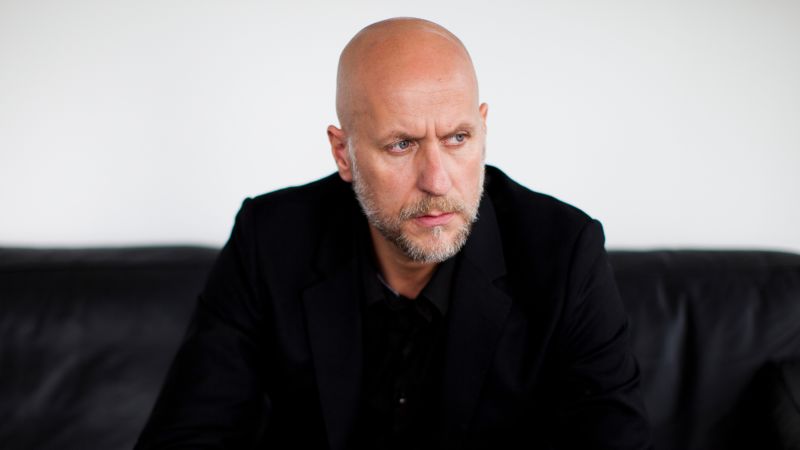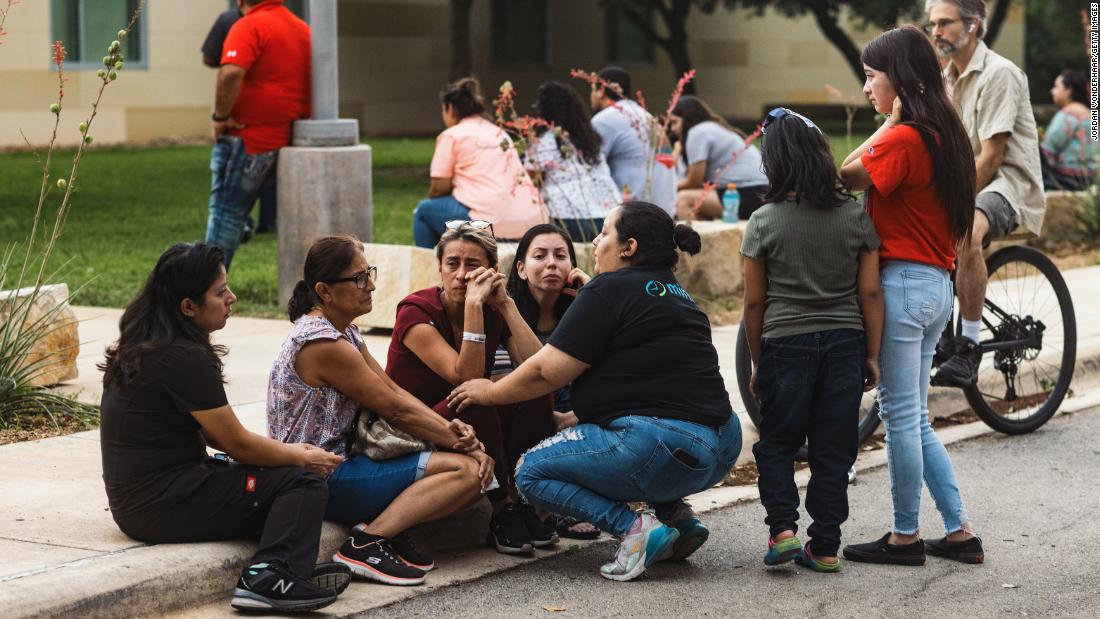CNN —
Here’s a look at the life of Luiz Inacio Lula da Silva, president-elect of Brazil.
Birth date: October 27, 1945
Birth place: Garanhuns, Pernambuco, Brazil
Father: Aristedes Inacio da Silva, agriculture worker
Mother: Euridice Ferreira de Mello, seamstress
Marriages: Rosangela Silva (May 18, 2022-present); Marisa Leticia Lula da Silva (1974-2017, her death); Maria de Lourdes Lula da Silva (1969-1971, her death)
Children: with Marisa Leticia Lula da Silva: Luis Claudio, Sandro, Fabio and Marcos (from her first marriage and adopted by Lula da Silva); with Miriam Cordeiro: Lurian
He goes by the nickname Lula, which he formally added to his name in 1982.
Lula da Silva’s father was against education and believed supporting the family was more important, so Lula da Silva didn’t learn to read until age 10.
He left school completely after the fifth grade to work full-time.
He has nine fingers, having lost the little finger on his left hand in a work accident.
His first wife died of hepatitis in her eighth month of pregnancy along with the child.
Unhappy with the lack of political representation of the working class in Brazil, he decided to get involved in politics.
Lula da Silva is a founding member of Partido dos Trabalhadores, the Workers’ Party.
Believes that global institutions such as the United Nations and the World Trade Organization favor rich nations and must be revamped to address the needs of developing nations, where most of the world’s population lives.
He was a longtime friend of former Cuban leader Fidel Castro and visited him in September 2003. Castro backed all of his presidential runs.
1966 - Becomes a metalworker and is active in the metalworkers union.
1975 - Elected president of the metalworkers union.
March 10, 1980 - Helps found the Workers’ Party.
April 19-May 19, 1980 - As one of the leaders of a metalworkers union strike, is arrested after police confront workers. He is held for 31 days.
November 1982 - Comes in fourth in the gubernatorial race for the state of Sao Paulo.
1983 - Helps found the Central Única dos Trabalhadores, a national trade union confederation.
1986 - Elected to the Brazilian congress.
1989, 1994 and 1998 - Is the Workers’ Party candidate for president; he comes in second each time.
October 27, 2002 - Is elected president in a runoff election with 61.3% of the vote.
January 1, 2003 - Inaugurated as president of Brazil.
October 29, 2006 - Wins a second four-year term in office with 61% of the vote.
September 30, 2008 - Reacts to the downturn in global and US markets: “We can’t be turned into victims of the casino erected by the American economy.”
October 2009 - Is credited with helping Rio de Janeiro win its bid to host the 2016 Summer Olympics, the first Olympics to be held in South America.
January 1, 2010 - A film dramatization of Lula da Silva’s life, “Lula, Son of Brazil,” opens in Brazil.
April 2010 - Is voted number one of Time magazine’s 100 Most Influential People in the World.
January 1, 2011 - Leaves office with a 90% approval rating.
October 29, 2011 - Is diagnosed with throat cancer.
February 17, 2012 - It is announced that Lula da Silva’s cancer is in complete remission.
March 16, 2016 - Accepts an offer to become chief of staff for his successor and protégé, Dilma Rousseff. The appointment gives him some legal immunity in a corruption investigation and fuels political tensions in the divided country. Lula da Silva is sworn in as chief of staff on March 17.
March 18, 2016 - A judge from Brazil’s Supreme Federal Court files an injunction blocking Lula da Silva from becoming chief of staff to Rousseff.
September 14, 2016 - According to state-run news agency Agencia Brasil, Brazilian prosecutors file corruption charges against Lula da Silva and his wife Marisa Leticia Lula da Silva. The charges stem from the Operation Car Wash money laundering investigation. Lula da Silva sends out a series of tweets after the charges are announced, calling them “fiction.” In a statement, his lawyers say the case is politically motivated and accuse the prosecution of making hasty conclusions.
September 20, 2016 - A Brazilian judge rules that there is enough evidence for Lula da Silva, his wife and six others to stand trial on corruption charges.
February 3, 2017 - Lula da Silva’s wife passes away.
July 12, 2017 - Is found guilty of the charges of corruption and money laundering stemming from bribes and benefits he received from state-run oil company Petrobras. Brazilian Federal Judge Sergio Moro sentences Lula da Silva to nine and a half years in jail. He remains free during his appeal.
September 5, 2017 - Corruption charges are filed against Lula da Silva, his successor Rousseff, and six Workers’ Party members. They are accused of running a criminal organization, to divert funds from state-owned oil firm Petrobras. The charges are related to Operation Car Wash. Lula da Silva, Rousseff and the Workers’ Party deny the allegations.
January 24, 2018 - A Brazilian appeals court unanimously upholds his corruption conviction, casting doubt on his plans to run again in an upcoming presidential election. The three appellate court judges also add two and a half years to his sentence, giving him 12 years and one month in prison. Lula da Silva remains free pending any future appeals.
April 7, 2018 - After defying an order to turn himself in by holing up at a union building for a day, he surrenders to federal authorities to begin serving a 12-year prison sentence for corruption.
August 15, 2018 - Announces that he has submitted the necessary paperwork to register as the Workers’ Party candidate in the upcoming presidential election.
September 1, 2018 - Brazil’s top electoral court bars Lula da Silva from running for reelection because of his corruption conviction.
February 6, 2019 - In another corruption case, he is sentenced to 12 years and 11 months in prison for accepting bribes in the form of renovations to his country house.
April 23, 2019 - Brazil’s Superior Court of Justice reduces Lula da Silva’s prison sentence from 12 years and one month to eight years and 10 months, for one of his two corruption convictions.
August 7, 2019 - Brazil’s Superior Court overrules a lower court’s order transferring Lula da Silva from a cell in federal police headquarters in the city of Curitiba, where his supporters have gathered, to a prison in Sao Paulo.
September 30, 2019 - Lula da Silva releases a letter via Twitter rejecting prosecutors’ request to move him from prison to house arrest. In his quest for exoneration, he says that he will not trade his dignity for his freedom.
November 7, 2019 - Brazil’s Supreme Court rules that defendants can remain free until they have exhausted all appeals. The ruling reverses a previous decision that had helped put dozens of powerful politicians and business leaders behind bars.
November 8, 2019 - Leaves prison after a year and a half behind bars.
September 1, 2020 - A federal court in Brazil dismisses a corruption case against Lula da Silva for lack of sufficient evidence. He was accused of lobbying in favor of construction company Odebrecht.
March 8, 2021 - A Brazilian court throws out Lula da Silva’s corruption convictions, which allows him to run in the 2022 presidential election.
May 7, 2022 - Formally announces his pre-candidacy for president in the October 2022 election.
October 2, 2022 - In the presidential election, Da Silva finishes with 48.4% versus incumbent Jair Bolsonaro’s 43.2%. Either candidate needed to surpass 50% to be elected in the first round of voting, so the two will face each other in a runoff on October 30.
October 30, 2022 - Da Silva wins a tight run-off race against Bolsonaro to be elected president of Brazil. His victory represents a return of the left to power in Brazil and concludes a triumphant personal comeback for da Silva. This will be his third term as president.






 English (US) ·
English (US) ·